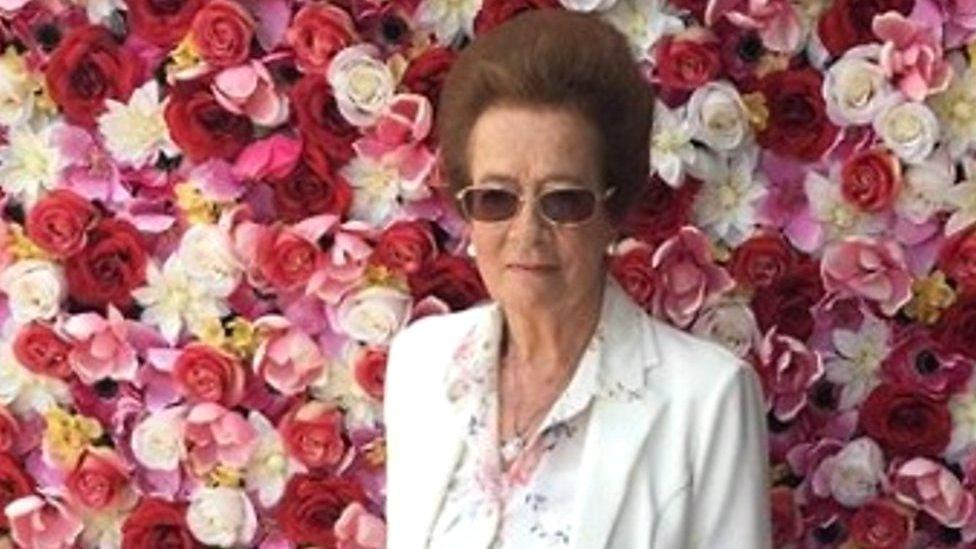'How Instagram became my support system'
- Published
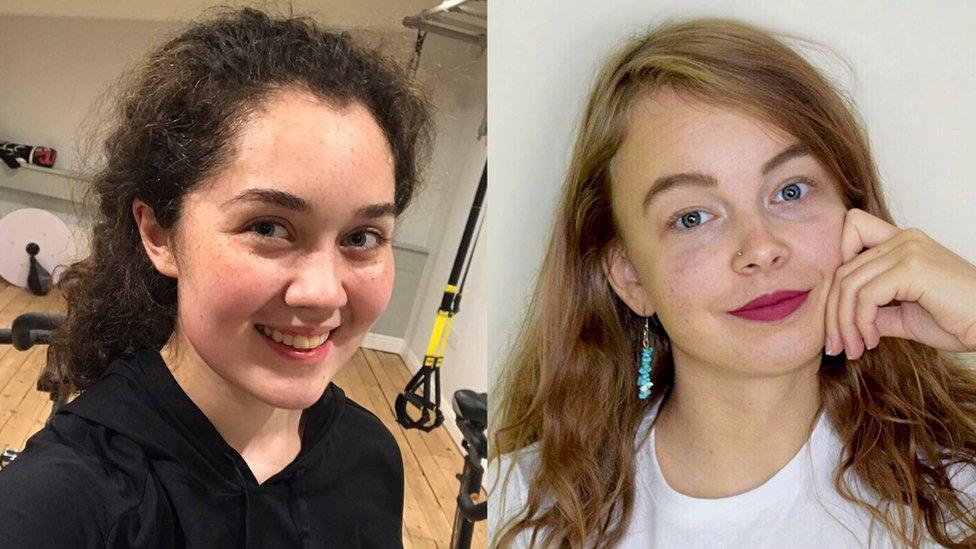
Ashleigh (L) and Kay (R) say the Instagram community helped them through difficult times in their life
Five years ago Ashleigh wouldn't have dreamed of sharing a selfie on Instagram.
When she was first diagnosed with anorexia aged 14 she was shy and lacking in confidence.
But then she discovered Instagram's recovery community - other people like herself who posted about the highs and lows of living with an eating disorder.
She decided to start her own account where she would post photos of her meals and document her day.
"My Instagram feed was a visual reminder of what I'd eaten that day.
"So I could literally look back and see 'wow, that really isn't very much,'" she says.
"It was kind of the first step towards acknowledging that something had to be done."
Using hashtags, she built up a close-knit group of followers who would comment on her posts, celebrating her successes and supporting her through bad days.
Allow Instagram content?
This article contains content provided by Instagram. We ask for your permission before anything is loaded, as they may be using cookies and other technologies. You may want to read Meta’s Instagram cookie policy, external and privacy policy, external before accepting. To view this content choose ‘accept and continue’.

A survey last year rated Instagram as the worst social media platform for young people's mental health.
The study warned the image-focused app, where users share photos and videos with their followers, could be driving feelings of inadequacy and anxiety.
But for Ashleigh the app played an important role in her recovery from anorexia.
"It helped me realise that I wasn't alone, because other people were going through the same thing as me," she says.
Allow Instagram content?
This article contains content provided by Instagram. We ask for your permission before anything is loaded, as they may be using cookies and other technologies. You may want to read Meta’s Instagram cookie policy, external and privacy policy, external before accepting. To view this content choose ‘accept and continue’.

Kay Ska says Instagram can also help break the taboo around mental health.
The 23-year-old has struggled with anxiety, depression and eating disorders for most of her life.
But she says posting about her experiences gave her a way of talking openly about her mental health at a time when she didn't feel comfortable speaking to friends or family.
"At the start Instagram was just a platform to express myself. Then people started commenting on my posts, relating to what I was saying, which kind of shocked me," she says.
"I didn't really have many friends who were that supportive, so it was weird for me to find so many people who are genuinely rooting for you."
Allow Instagram content?
This article contains content provided by Instagram. We ask for your permission before anything is loaded, as they may be using cookies and other technologies. You may want to read Meta’s Instagram cookie policy, external and privacy policy, external before accepting. To view this content choose ‘accept and continue’.

Emma Forsyth, 32, also found support when she couldn't get pregnant.
She has been trying to have a baby through IVF for two years and co-hosts a podcast, Big Fat Negative, external, about infertility.
"You almost feel like a freak because your body is essentially betraying you," she says.
"It's honestly one of the loneliest feelings and no-one can really know what it's like unless they are going through it as well.
"Your friends don't get it. Your family don't get it. Quite often your partner doesn't get it."
But a few months ago she set up her own infertility-only Instagram account and was soon flooded with supportive messages and comments.
Many of the women she met online became friends in real life and are now a vital part of her support network.
Allow Instagram content?
This article contains content provided by Instagram. We ask for your permission before anything is loaded, as they may be using cookies and other technologies. You may want to read Meta’s Instagram cookie policy, external and privacy policy, external before accepting. To view this content choose ‘accept and continue’.

All three women admit Instagram has its downsides.
The focus on body image in particular can be dangerous for people with an eating disorder.
"If someone sees that a certain body type gets more 'likes', subconsciously you're going to think 'I want to look like that too,'" Ashleigh says.
Kay also warns against relying too much on social media and says it's important to be selective about who you follow.
"When I was growing up I found I was comparing myself with other people online.
"No-one told me that I didn't have to follow these accounts that made me feel bad about myself," she says.
While she later found Instagram a great source of support, she also stresses it isn't a substitute for professional help.
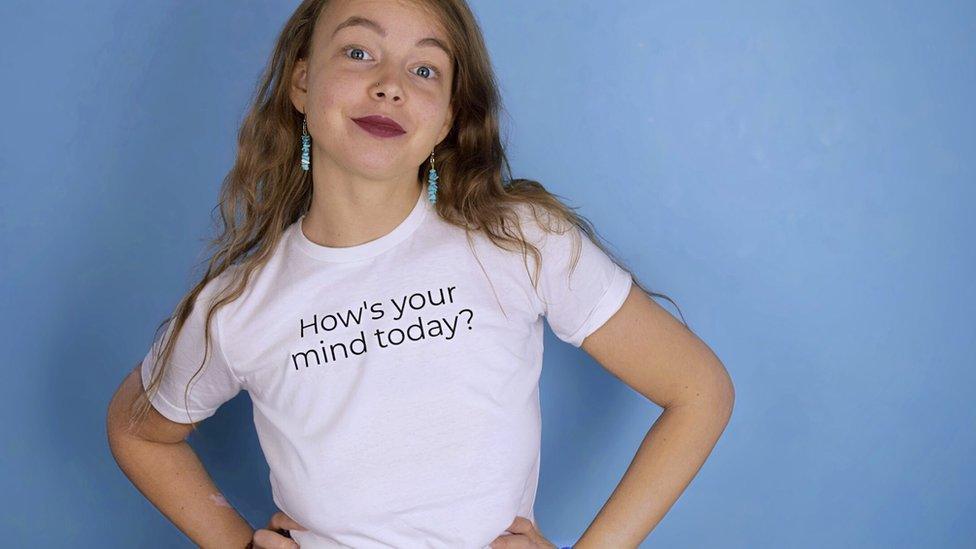
Kay is now a mental health blogger and campaigner
However, Emma says that for her, the Instagram community filled a void that wasn't being addressed by her doctors.
"Fertility clinics tend to treat women almost like machines which need fixing," she says.
"What they're not taking into account is the stuff that's going on in your head."
She says the people she has met through Instagram have helped her deal with the emotional impact of infertility.
"It was just so refreshing to find people saying 'I'm going through the same thing, you're not by yourself.'"
- Published19 May 2017
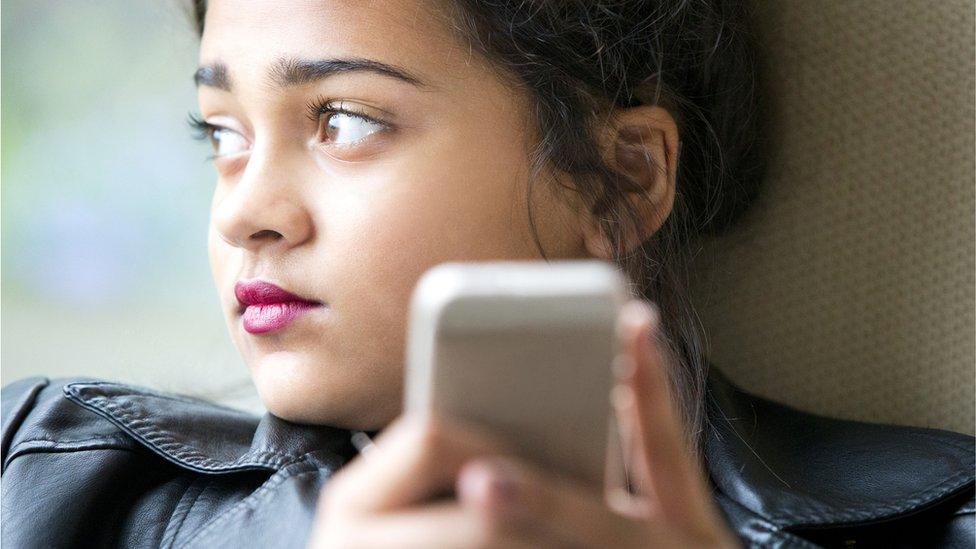
- Published10 February 2018
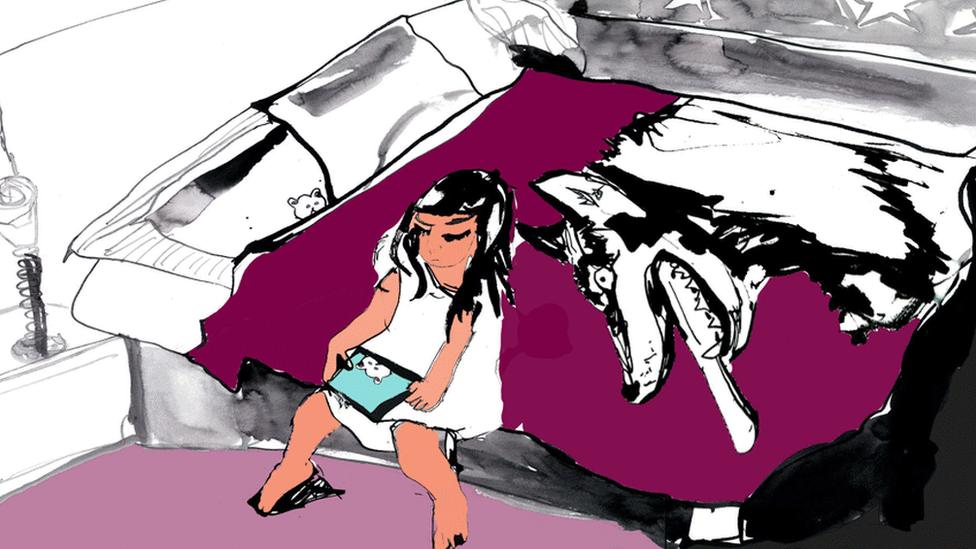
- Published17 August 2018
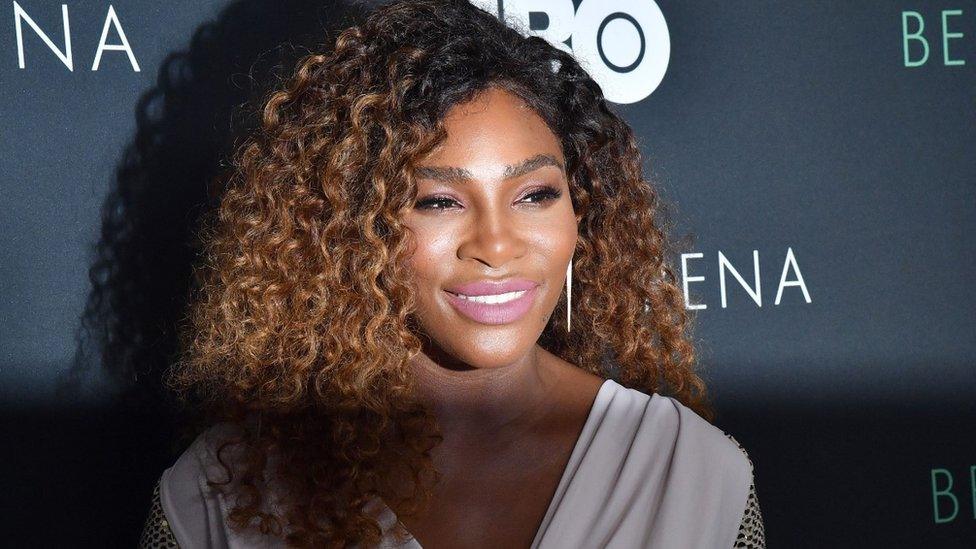
- Published29 September 2018
